
INFLUENCE OF ANTHROPOGENIC PRESSURES ON THE BIOACTIVITY POTENTIAL OF SPONGES AND SOFT CORALS IN THE CORAL REEF ENVIRONMENT
The wealth of marine sponges and soft corals in Indonesian waters represents a rich source of natural products. However, anthropogenic pressures potentially decrease diversity in coral reefs. Presented here are trends for tropical sponge and soft coral biodiversity and their bioactivity potential under the influence of increasing anthropogenic pressures. Samples were collected along transects (near, mid, and far) at Karimunjawa and Seribu Islands Marine National Parks and environmental parameters (salinity, pH, dissolved oxygen (DO), phosphate, nitrate, and ammonia), sponge and soft coral biodiversity, and the bioactivity potential of those organisms (50% Growth Inhibition (GI 50 ) of cancer cell lines H460-Lung, MCF7-Breast, and SF268-CNS) are compared. The environmental conditions and biodiversity were found to be significantly different between groups of sampling sites (P < 0.05). Canonical Discriminant Analysis (CDA) revealed DO was the discriminant factor driving the separation between groups (90.1%). Diversity tended to be higher in the Far group with strong and significant relation to DO (R = 0.611, P < 0.05) and ammonia (R = -0.812, P < 0.05). The CDA also showed that an increase in bioactivity (low % GI 50 ) of sponge and soft coral extracts was related to a canonical function (57.21%) consisting of high DO, high pH, and low nutrients. These findings indicate the production of bioactive compounds is related to diversity and complexity of coral reef systems. Therefore, strategies for marine protection by mitigating the impacts of anthropogenic pressures needs to be optimized in order to conserve the overall environment and sustain its natural bioactivity potential indefinitely.
Availability
| B1801645 | Koleksi Digital | Archivelago Indonesia Marine Library - Perpustakaan Kementerian Kelautan dan Perikanan | Available |
Detail Information
- Series Title
-
-
- Call Number
-
Koleksi Digital
- Publisher
- 2015 : KKP-Badan Penelitian dan Pengembangan Kelautan dan Perikanan., Jakarta
- Collation
-
51-59 hlm.
- Language
-
English
- ISBN/ISSN
-
2406-9272
- Classification
-
NONE
- Content Type
-
-
- Media Type
-
-
- Carrier Type
-
-
- Edition
-
10 (2) 2015
- Subject(s)
- Specific Detail Info
-
-
- Statement of Responsibility
-
Squalen Bulletin of Marine & Fisheries Postharvest & Biotechnology
Other version/related
No other version available
File Attachment
Comments
You must be logged in to post a comment
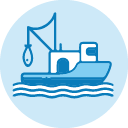 Perikanan Tangkap
Perikanan Tangkap 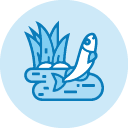 Perikanan Budidaya
Perikanan Budidaya 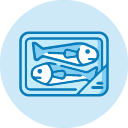 Pengolahan Ikan
Pengolahan Ikan 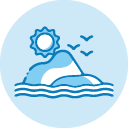 Pulau Kecil
Pulau Kecil 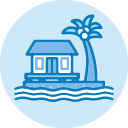 Masyarakat Pesisir
Masyarakat Pesisir  Local Content
Local Content 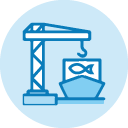 Ekspor Perikanan
Ekspor Perikanan 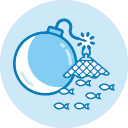 Illegal Fishing
Illegal Fishing  Ilmu - Ilmu Sosial
Ilmu - Ilmu Sosial  Geografi dan Sejarah
Geografi dan Sejarah